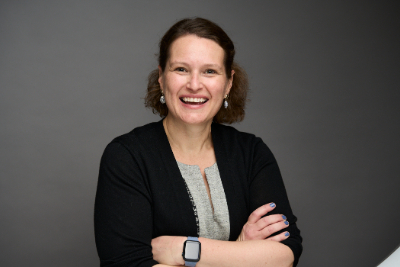Therapy for neurodivergent adults could include trauma-informed care, sensory sensitivity, support for masking burnout, and flexibility in communication styles/pace. If you’re neurodivergent, or think you might have a neurodivergent brain, you’ve probably spent a lot of your life adjusting to a world not built for your brain. Maybe that includes therapy, too.
Traditional therapy can fall flat, or even feel invalidating, when it treats neurodivergence as something to “fix” rather than as an important part of your identity. That’s where neurodivergent-affirming therapy comes in. This therapeutic approach celebrates neurodivergence as a part of who you are and builds support around your unique needs and strengths.
Understanding “Neurodivergent”: For Readers New to the Term
Neurotypical refers to people whose brain functions and processes align with societal norms for thinking, learning, and behaving. Neurodivergence, on the other hand, is an umbrella term used to describe natural variations in how people think and process information. It includes conditions like:
- Autism
- Attention-deficit/hyperactivity disorder (ADHD)
- Obsessive-compulsive disorder (OCD)
- Dyslexia or dyspraxia
- Tourette syndrome
- Sensory processing differences
Some people may identify as neurodivergent due to non-pathologized cognitive and sensory differences, meaning they don’t see their brains as “disordered” with a certain condition, they just know their brains operate differently than neurotypical people.
The Problem With Traditional Therapy
Many neurodivergent adults say that therapy, especially when led by clinicians unfamiliar with neurodiversity, has left them feeling misunderstood, dismissed, or even harmed.
This isn’t because therapy can’t help, but because traditional approaches often rely on neurotypical norms that don’t reflect how many neurodivergent people operate. These disconnects can show up in subtle but impactful ways during sessions:
- Misread their communication style as “flat” or “rude”: Neurodivergent people may communicate in ways that are more direct or less emotionally expressive, and this can be misinterpreted by therapists unfamiliar with neurodivergent expression. What may be perceived as disinterest or defiance is often just authenticity or honesty.
- Prioritized eye contact or “normal” social behavior: Therapists without training or experience with neurodiversity may encourage neurotypical social norms like making eye contact or using a “typical” tone of voice as goals for progress. This can make therapy feel like a space where masking is rewarded and comfort is ignored, reinforcing shame instead of safety.
- Misunderstood special interests: Infatuation with a specific topic or hobby (often referred to as a special interest in the neurodiverse community) is often viewed as inappropriate or even obsessive. For neurodiverse people, special interests are a source of joy or comfort. In traditional therapy settings, special interests are sometimes seen as a problem to fix, which can lead to feelings of alienation.
- Missed the trauma of lifelong masking: Many neurodivergent adults have spent their lives hiding or reshaping who they are in order to fit in, known as masking. This constant masking of who they are can result in exhaustion, identity confusion, anxiety, and complex trauma. Therapists who don’t recognize this dynamic may overlook one of the most central struggles their neurodivergent clients face.
What Does Neurodivergent-Affirming Therapy Look Like
Neurodivergent-affirming therapy recognizes that neurodivergent people experience the world differently, and those differences are not flaws or disorders, but valid variations of human experience.
Instead of using a neurotypical model of therapy, neurodivergent-affirming care adapts to you. It starts by respecting your communication style, honoring your sensory needs, and creating a space where you don’t have to mask or translate your experience just to be understood.
- Masking-aware: Your therapist understands that masking can lead to deep mental exhaustion and eventually to burnout. There’s no expectation to show up as neurotypical.
- Sensory-respectful: The therapy environment (whether in person or virtual) considers your sensory needs. That might mean soft lighting, soft voices, fidget tools in session, or turning your camera off during virtual sessions if eye contact or being seen is overstimulating.
- Non-pathologizing: You are not broken. Your brain doesn’t need to be fixed. Affirming therapists don't view things like stimming, special interests, or social differences as problems. Instead, they focus on helping you live more fully in alignment with your needs.
- Accommodating: Flexibility is built into the process. You might prefer to use written scripts in conversation, stim while talking, bring up topics via email before a session, or use analogies from your special interests to describe how you're feeling.
Modalities That Can Work Well for Neurodivergent Adults
- Cognitive Behavioral Therapy (CBT): When adapted for neurodivergent brains (e.g., clear structure, visual aids, no pressure to “reframe” everything).
- Dialectical Behavior Therapy (DBT): For emotion regulation, when the pace of treatment is adapted for success.
- Trauma-informed therapy: For many neurodivergent individuals, the experience of masking or trying to fit into a world not designed for their needs can create underlying trauma that is often misunderstood or overlooked.
- Somatic work: When verbal processing is too much.
Spring Health Can Help
Finding the right support as a neurodivergent person can be challenging, especially when so many mental health systems are built around neurotypical expectations. At Spring Health, we’re working to change that.
We partner with neurodivergent-affirming providers who offer care that’s grounded in respect, flexibility, and lived understanding. That means they:
- Understand masking as a tool to survive, not an expectation in session.
- Use clear, respectful communication without making assumptions about how you “should” think, feel, or behave.
- Prioritize consent in every step of care, involving you in decisions and honoring your autonomy at every step.
- Offer accommodations like alternative communication styles, stim-friendly environments, and space for special interests.
Whether you’ve had invalidating experiences in the past or are trying therapy for the first time, you deserve care that honors you.

.png)
























